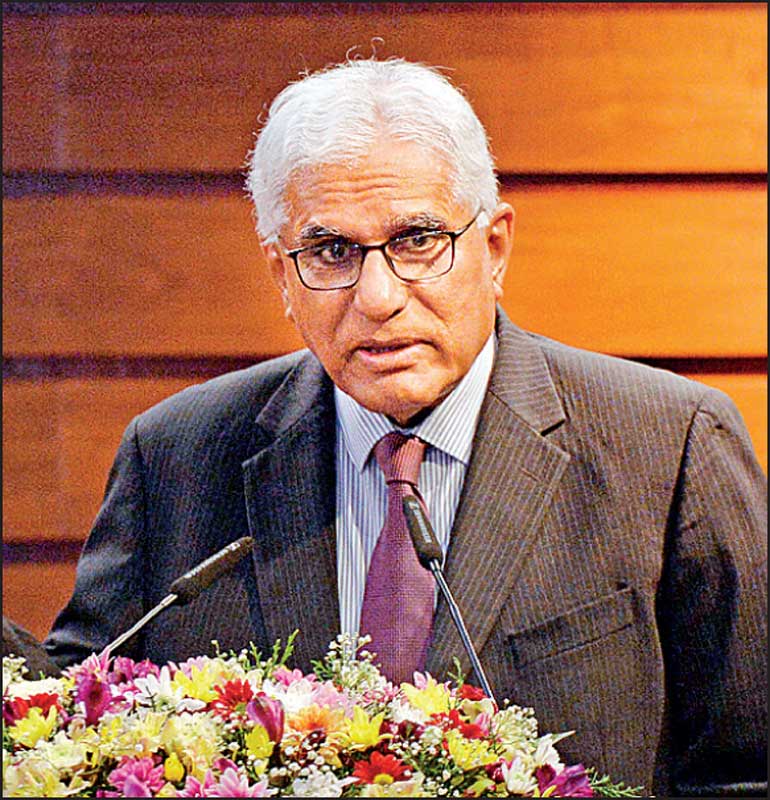Thursday Feb 19, 2026
Thursday Feb 19, 2026
Thursday, 13 March 2025 00:00 - - {{hitsCtrl.values.hits}}

Former CBSL Governor Dr. Indrajith Coomaraswamy
By Charumini de Silva
Former Central Bank (CBSL) Governor Dr. Indrajith Coomaraswamy on Monday commended the Government’s commitment to fiscal discipline, but cautioned that maintaining a primary expenditure cap of 13% of GDP will be a formidable challenge.
Delivering the first public lecture to mark the 75th Anniversary of the CBSL, he opined that priority should be on increasing tax revenue rather than curtailing essential expenditures.
Dr. Coomaraswamy pointed to Sri Lanka’s declining tax-to-GDP ratio, which fell drastically from over 20% in the 1990s to just 7.4% in 2022.
He attributed this decline to significant tax cuts in 2019 and tax holidays granted to emerging industries such as apparel and tourism. “These concessions failed to offset revenue losses from traditional sectors like tea, rubber, and coconut,” he stated.
Dr. Coomaraswamy insisted that once a company becomes profitable, it must contribute tax revenues, regardless of the sector in which they operate.
Additionally, he highlighted the need for modernised tax administration. Dr. Coomaraswasmy advocated for the full implementation of digital systems, such as the Revenue Administration Management Information System (RAMIS), which would enhance transparency and compliance. “By linking Government agencies with tax authorities, such reforms could streamline revenue collection and reduce inefficiencies,” he pointed out.
The former Governor also expressed concerns over the export sector, noting that exports as a percentage of GDP have declined from 35% in 2000 to less than 20% at present. “We have been talking about export-led growth since 1978, but we have failed to execute it,” he remarked.
Comparing Sri Lanka’s weak intermediate exports, he said that it is below 5% of total exports, whilst it is well above 50% in countries like Malaysia and Vietnam.
Dr. Coomaraswamy also warned against Sri Lanka’s protectionist policies, which have discouraged foreign direct investment (FDI) and excluded the country from integrating into global supply chains.
“Our tariff structure is highly distorted and para-tariffs like PAL and CESS have made us uncompetitive,” he claimed.